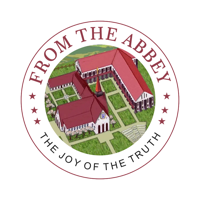
Why Should We Give Alms?
We’re all familiar with the 3-fold discipline of Advent: prayer, sacrifice and alms giving. Prayer and sacrifice prepare our hearts to receive Jesus. They have the power to truly change our hearts. But what about alms giving? Obviously we know that giving food and money to the poor us a good thing to do. But how does alms giving change our hearts?
If you think this isn’t an issue just look at the way Catholics approach the closely related topic of stewardship. Whenever our diocese does the annual campaign, the language we hear is “quotas” and “goals” and “if everyone would participate we’d meet our goal quickly and we wouldn’t have to hear about this anymore.” It’s very much a “pay your dues to be members of the club” mentality.
With the dominance of social justice thinking in the Church, alms giving can take much the same tenor. We start to see it as a duty. It’s just something we do because we’re Catholic.
But there’s so much more to it than that!
The Meaning of Money
Our misunderstanding of alms giving is closely related to our misunderstanding of money. Most people don’t see a spiritual connection at all between money and their relationship with God. But let’s step back a bit and think about what money really is.
Without money, economic exchanges are done in a barter system. The barter system actually makes the nature of economy much clearer than the money system does because it deals in what are called “primary goods.” Primary goods are things and services that directly benefit people. In the barter system, I use my skills and opportunities to produce goods and services that other people need. In exchange for my help, others offer me the products of their own skills and services. So in effect we help each other, creating a system of interdependence.
I could then go beyond what would be considered a “fair trade” (strict justice) and be more generous to others, giving me the opportunity to exercise charity. Charity in the barter system literally meant that I was giving more of myself to another person.
Money is a secondary good. That means that it doesn’t directly benefit someone, but can be used in trade for something that does. Therefore money is symbolic of the time, talents and opportunities I would normally offer as a barter. Money is good for an economy because it broadens opportunity. I may be able to trade with someone who doesn’t necessarily need my particular goods and services by offering money that they can trade with someone else for goods and services they do need (from someone who may not need their goods and services).
Since money stands in the place of offering my, I can offer money as an act of charity and it is still a gift of myself. Sometimes what is lacking in a gift of money is an awareness that I am actually making a gift of self. I’m not directly serving someone, and I may even give to someone with absolutely no relationship between us. They don’t know whom the money comes from and I don’t necessarily know who benefits from my gift. That’s the danger of showing charity with money. But awareness or no, the act of giving is the same.
As Christians, we should see money as the potential to do good in the world. When we give our own money – money that we earned through our time, talents and efforts, we are truly giving ourselves to others, and we are sharing with others the goodness that God has blessed us with.
Charity & Mercy
So the key to alms giving – whether I do it through direct service or through money – is that we are not just giving stuff, we are giving ourselves. This is where we cross the line from “justice” and duty to true charity. Jesus teaches as part of His Sermon on the Mount, “and if any one would sue you and take your coat, let him have your cloak as well; and if any one forces you to go one mile, go with him two miles. Give to him who begs from you, and do not refuse him who would borrow from you” (Matthew 5:40-42). The theme of the Sermon on the Mount Jesus is to go beyond a legalistic observance of the God’s Law to live out its full purpose – which is to teach us how to love.
In fact, the word “alms” comes from the Latin root word for mercy. What is mercy? Mercy is love exercised toward someone who is suffering. Sometimes mercy is exercised through forgiveness (this is the main way God expresses His mercy toward us). Sometimes it’s exercised by relieving physical or emotional suffering. Sometimes it’s exercised by sharing the burden. In every case, mercy is a gift of self. The same is true when we give alms to the poor.
Let It Change Your Heart
The question we need to ask about our alms giving during Advent is will we let it change our heart? There is a big difference between “giving to charity” and “giving in charity.” Are we “giving to charity” out of a sense of duty? Or are we deliberately and consciously giving a gift of ourselves in an exercise of true charity? Both options do good in the world, but only one has the power to change our hearts.

